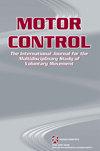Cognitive and Physical Effects of Warm-Up on Young Soccer Players.
IF 0.9
4区 医学
Q4 NEUROSCIENCES
引用次数: 8
Abstract
This study analyzed the effects of with (WC) or without conducting a warm up on youth soccer players immediately before performing physical and cognitive tests. Fourteen youth soccer player (age 11.64 ± 0.50) participated in a counterbalanced cross-sectional study in which three conditions were tested: (a) basal lineal condition; (b) WC (immediately before the physical and cognitive tests); and (c) without WC (passive resting for 15 min between the warm-up and physical and cognitive tests). A 30-m sprint test, countermovement jump, and psychomotor vigilance task were also applied. The WC revealed significant improvements in countermovement jump (p < .05), 30-m sprint test performance (p < .05), and reaction time in psychomotor vigilance task (p < .05) in comparison to basal lineal condition and without WC. A 15-min rest after a warm-up has a meaningfully decremental effect on the physical and cognitive readiness of youth soccer players, in comparison with when they warm-up immediately before the demands are imposed.热身运动对青少年足球运动员认知和身体的影响。
这项研究分析了青少年足球运动员在进行身体和认知测试之前进行热身或不进行热身的影响。14名青少年足球运动员(年龄11.64±0.50)参加了一项平衡横断面研究,其中测试了三种情况:(a)基础线性条件;(b)体检(在体检和认知测试之前);(c)无WC(在热身和身体和认知测试之间被动休息15分钟)。此外,还进行了30米冲刺测试、反向跳跃测试和精神运动警戒任务。与基础线性条件和不加WC相比,WC组在逆向动作跳跃(p < 0.05)、30米冲刺测试成绩(p < 0.05)和精神运动警觉性任务的反应时间(p < 0.05)上有显著改善。热身后休息15分钟对青少年足球运动员的身体和认知准备程度有显著的降低作用,与他们在要求之前立即热身相比。
本文章由计算机程序翻译,如有差异,请以英文原文为准。
求助全文
约1分钟内获得全文
求助全文
来源期刊

Motor Control
医学-神经科学
CiteScore
1.80
自引率
9.10%
发文量
48
审稿时长
>12 weeks
期刊介绍:
Motor Control (MC), a peer-reviewed journal, provides a multidisciplinary examination of human movement across the lifespan. To keep you abreast of current developments in the field of motor control, it offers timely coverage of important topics, including issues related to motor disorders. This international journal publishes many types of research papers, from clinical experimental to modeling and theoretical studies. These papers come from such varied disciplines as biomechanics, kinesiology, neurophysiology, neuroscience, psychology, physical medicine, and rehabilitation.
Motor Control, the official journal of the International Society of Motor Control, is designed to provide a multidisciplinary forum for the exchange of scientific information on the control of human movement across the lifespan, including issues related to motor disorders.
Motor Control encourages submission of papers from a variety of disciplines including, but not limited to, biomechanics, kinesiology, neurophysiology, neuroscience, psychology, physical medicine, and rehabilitation. This peer-reviewed journal publishes a wide variety of types of research papers including clinical experimental, modeling, and theoretical studies. To be considered for publication, papers should clearly demonstrate a contribution to the understanding of control of movement.
In addition to publishing research papers, Motor Control publishes review articles, quick communications, commentaries, target articles, and book reviews. When warranted, an entire issue may be devoted to a specific topic within the area of motor control.
 求助内容:
求助内容: 应助结果提醒方式:
应助结果提醒方式:


